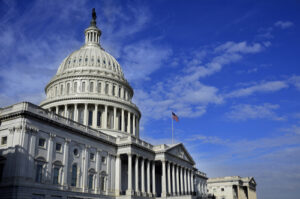
U.S. Rep. Frank Lucas (R-OK) forwarded correspondence June 1 to the National Science Foundation (NSF) regarding the University of California, Berkeley’s (UC Berkeley) failure to disclose $240 million in funds received from the Chinese government.
Lucas, chairman of the House Science, Space, and Technology Committee, sent the request to NSF with U.S. Rep. Mike Collins (R-GA), chairman of that committee’s Research and Technology Subcommittee.
“In exchange for monetary contributions, UC Berkeley officials offered exclusive tours of cutting-edge semiconductor research facilities to Chinese delegations,” Lucas and Collins wrote. “These delegations included Chinese researchers as well as multiple senior Chinese government officials. This is especially troubling given that there are no divisions between China’s government and its business and academic community, and the CCP has publicly disclosed that its plan to surpass the U.S. in science and technology involves stealing the results of our research, whether through foreign talent programs, forced acquisition, or other illicit means.”
According to a release from Lucas’ office, UC Berkeley also explored additional funding opportunities with dozens of Chinese companies, including Huawei, ZTE and DJI – all of which have since been sanctioned by the U.S. government.
“Allowing adversarial nations to access research facilities at the leading edge of semiconductor design is unacceptable, especially when that access is given by a U.S. research institution that receives over $700 million annually in funds from the federal government,” the legislators wrote.
Through the letter, Lucas and Collins implored NSF to implement new, stronger research security provisions included in the CHIPS and Science Act, which provides approximately $280 billion in new funding to boost domestic research and manufacturing of semiconductors in the United States. It also requires universities to report any foreign financial support of $50,000 or more to NSF, according to Rep. Lucas’ office.
“It is imperative that academic institutions conducting research funded by the federal government adhere to these policies to safeguard those investments and protect our research from being stolen and used by adversaries,” Lucas and Collins concluded.



